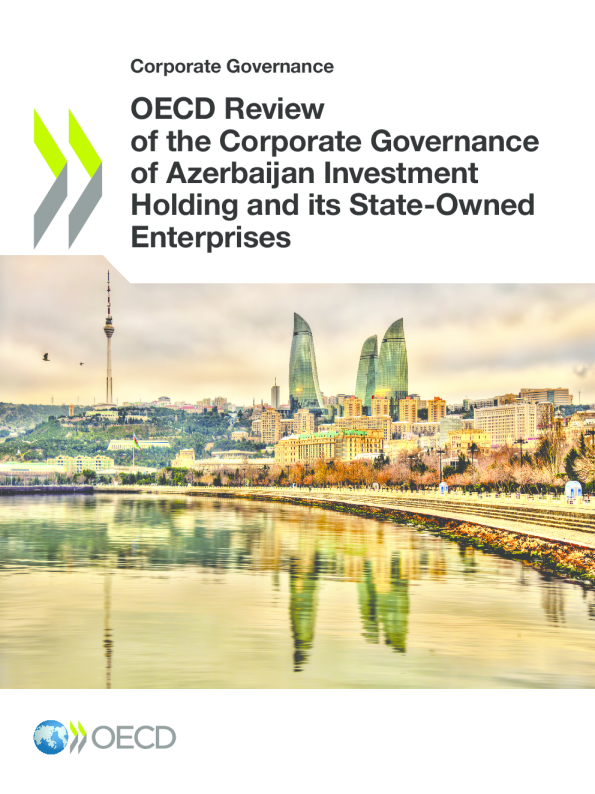经合组织公共治理审查:乌兹别克斯坦(英)
 AI智能总结
AI智能总结
OECDPublicGovernanceReviews Uzbekistan TOWARDSAMOREMODERN,EFFECTIVEANDSTRATEGICPUBLICADMINISTRATION OECDPublicGovernanceReviews:Uzbekistan TOWARDSAMOREMODERN,EFFECTIVEANDSTRATEGICPUBLICADMINISTRATION Thisdocument,aswellasanydataandmapincludedherein,arewithoutprejudicetothestatusoforsovereigntyoveranyterritory,tothedelimitationofinternationalfrontiersandboundariesandtothenameofanyterritory,cityorarea. ThestatisticaldataforIsraelaresuppliedbyandundertheresponsibilityoftherelevantIsraeliauthorities.TheuseofsuchdatabytheOECDiswithoutprejudicetothestatusoftheGolanHeights,EastJerusalemandIsraelisettlementsintheWestBankunderthetermsofinternationallaw. NotebytheRepublicofTürkiye Theinformationinthisdocumentwithreferenceto“Cyprus”relatestothesouthernpartoftheIsland.ThereisnosingleauthorityrepresentingbothTurkishandGreekCypriotpeopleontheIsland.TürkiyerecognisestheTurkishRepublicofNorthernCyprus(TRNC).UntilalastingandequitablesolutionisfoundwithinthecontextoftheUnitedNations,Türkiyeshallpreserveitspositionconcerningthe“Cyprusissue”. NotebyalltheEuropeanUnionMemberStatesoftheOECDandtheEuropeanUnion TheRepublicofCyprusisrecognisedbyallmembersoftheUnitedNationswiththeexceptionofTürkiye.TheinformationinthisdocumentrelatestotheareaundertheeffectivecontroloftheGovernmentoftheRepublicofCyprus. Pleasecitethispublicationas: OECD(2024),OECDPublicGovernanceReviews:Uzbekistan:TowardsaMoreModern,EffectiveandStrategicPublicAdministration,OECDPublicGovernanceReviews,OECDPublishing,Paris,https://doi.org/10.1787/2f36d8ec-en. ISBN978-92-64-88734-3(print) ISBN978-92-64-53528-2(PDF) ISBN978-92-64-28861-4(HTML) ISBN978-92-64-53945-7(epub) OECDPublicGovernanceReviewsISSN2219-0406(print) ISSN2219-0414(online) Photocredits:Cover©MehmetO/Shutterstock.com,modifiedbyCiaraMuller. CorrigendatoOECDpublicationsmaybefoundat:https://www.oecd.org/en/publications/support/corrigenda.html. ©OECD2024 Attribution4.0International(CCBY4.0) ThisworkismadeavailableundertheCreativeCommonsAttribution4.0Internationallicence.Byusingthiswork,youaccepttobeboundbythetermsofthislicence(https://creativecommons.org/licenses/by/4.0/). Attribution–youmustcitethework. Translations–youmustcitetheoriginalwork,identifychangestotheoriginalandaddthefollowingtext:Intheeventofanydiscrepancybetweentheoriginalworkandthetranslation,onlythetextoforiginalworkshouldbeconsideredvalid. Adaptations–youmustcitetheoriginalworkandaddthefollowingtext:ThisisanadaptationofanoriginalworkbytheOECD.TheopinionsexpressedandargumentsemployedinthisadaptationshouldnotbereportedasrepresentingtheofficialviewsoftheOECDorofitsMembercountries. Third-partymaterial–thelicencedoesnotapplytothird-partymaterialinthework.Ifusingsuchmaterial,youareresponsibleforobtainingpermissionfromthethirdpartyandforanyclaimsofinfringement. YoumustnotusetheOECDlogo,visualidentityorcoverimagewithoutexpresspermissionorsuggesttheOECDendorsesyouruseofthework. AnydisputearisingunderthislicenceshallbesettledbyarbitrationinaccordancewiththePermanentCourtofArbitration(PCA)ArbitrationRules2012.TheseatofarbitrationshallbeParis(France).Thenumberofarbitratorsshallbeone. Preface Inrecentyears,Uzbekistanhascarriedoutawiderangeofpolicyreformstoenhancelivingstandardsbyopeninguptoforeigntradeandinvestment,raisingproductivity,increasingtheresilienceoftheeconomytoshocks,andaddressingpovertyandclimatechange.ThisreformprocesshasattractedwidespreadattentionfromUzbekistan’sneighbours,internationalpartnersandinvestors. Thesuccessfulliberalisationofforeignexchange,priceliberalisationandexternalopeninghaveallhelpedreducethescopeofstateinterventionineconomicprocesses.Farmoredifficultarereformstochangeinstitutionsandreshape,ratherthanreduce,thestate’sroleineconomicandsociallife.Yetpoliciesthatrequirewell-developedanalytical,regulatoryandadministrativecapacitiesandthatentailprofoundtransformationsincreasinglydominateUzbekistan’sreformagenda,withtheobjectiveof“buildingajustandmodernstatethatservesthepeople,”asstatedintheauthorities’“Uzbekistan2030”Strategy. Theirsuccesswilldependonthequalityofpublicgovernance.ThisOECDPublicGovernanceReviewofUzbekistan,madepossiblebythegenerousfinancialsupportofGermany,thuscomesatacriticaljuncture.Efficient,effective,accountableandtransparentpublicgovernancecanbringgreaterlegitimacyandcommitmenttothegovernment’sbroadereconomicandpoliticalreformagendas,aswellasimprovethequalityofpolicyandpublicservicedesignandimplementation.Governancereformsthuscreatethefoundationsforreformsinmosteconomicandsocialpolicydomains. Thereviewbeginsandends,asonemightexpect,withthepublicadministrationitself:withthemandates,competencesandcapabilitiesofcorestateinstitutionsandtheircapacitytodeliverontheUzbekistan2030agenda,andwiththepreparation,selection,motivationandmanagementofamoreefficient,trustworthyandresponsivecivilservice.However,italsoaddressesseveralmorespecificchallenges:promotingandmainstreaminggenderequalityinpolicymaking;strengtheningtheintegrityofthepublicadministration;andmakingregulatorypolicymakingmoretransparent,inclusiveandev




